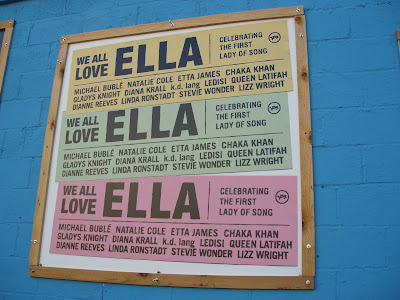
Bonnaroo has a lot in common with the sixties: Hippies run the show and if you were there you probably don’t remember. With The Police headlining and a cozy jazz club on the fairground, the whole festival seems like a bizarre time warp. Young artists like indie songstress Feist and rapper El-P, however, entrench Bonnaroo just as firmly in the present. In 2007, as dreadlocked hippies and mohawked Tool fans stood side by unwashed side, Bonnaroo featured a strikingly diverse line-up.
After Decatur’s own Ryan Shaw kicked the festival off, the opening night was dominated by solid sets from modern rock bands like post-rockin’ Mutemath, indie icons The National, and the droning, psychedelic Black Angels, who blew more than a few minds with their sunset show. The buzz of the evening, however, centered on Rodrigo y Gabriela. This young acoustic guitar duo from Mexico wowed the crowd by playing slide guitar with a bottle of Jack Daniels and generally showing more skill with the instrument than anyone this side of John Fahey. It all added up to easily Bonnaroo’s best opening night in its six year history.
Friday saw the youth movement bucked early on as James Blood Ulmer got the hippies up and moving with his blues-infused jazz, while Ravi Coltrane recalled both of his parents with a fiery, chaotic set. Make no mistake, though: Ravi made it clear that he is a fine musician in his own right. The festivities then turned back to the modern—Tortoise was propulsive (and quite good), the Black Keys were grimy (and quite good), Aesop Rock was sharp (and quite good) and Tool was bombastic (and quite, um, bombastic). The day belonged, however, to one of the old guard, legendary guitarist Richard Thompson and his band. Mixing songs from
Sweet Warrior with some classics, Thompson turned in a picture-perfect set full of wit, passion, and, of course, absolutely killer guitar solos. Thompson’s supremely powerful stage presence will be one the enduring memories of Bonnaroo 2007 for many, myself included.
Saturday was easily the festival’s weakest day. Though headliners The Police impressed (Sting provided the festival’s definitive moment as he ripped his shirt off), the rest of the day largely treaded water at best. The Flaming Lips, for example, may have amazed with their visual gimmickry, but the Lips fell utterly flat musically and lost further momentum as frontman Wayne Coyne descended into long, preachy diatribes between songs. Their massive audience would have been much better served in the jazz tent with Scott Amendola and Nels Cline. The day’s saving grace, however, was The Hold Steady. The Minnesotan rockers won the crowd immediately with their rollicking, catchy tunes and kept their energy on overdrive throughout. Craig Finn and Co. ended their American tour in style and had more than a few hippies putting out their joints and hoisting beers.
Atypical of previous years, Sunday may well have been Bonnaroo’s finest day. Mavis Staples and Charlie Louvin got things going, setting a standard for the day’s classic acts that would be continued by fine saxophonist David Murray. Even with he jazz-heads abuzz about the day’s impending performance from the legendary Ornette Coleman, Murray’s eruptive set managed to capture everyone’s ears. After a predictably intense and awesome set from Wilco, the aforementioned Coleman took the stage. Following fifty minutes of amazingly chaotic, complex and beautiful playing on trumpet, violin, and, of course, his white plastic alto, the jazz legend collapsed due to the extreme heat. It was a sobering reminder that he always gives absolutely everything he has. After ascertaining that Coleman was okay, I joined the tens of thousands watching the White Stripes, but as good as Jack and Meg were, my mind remained on Coleman’s set, which was easily the most pure form of human expression I have ever experienced.
When it was all done, the festival ground was littered with beer bottles, cigarette butts, and all kinds of trash. The sixties destroyed themselves with excess and, with more and more partiers, every year, Bonnaroo threatens to do the same. If you cut through all that crap, however, there’s tons of great music—just like the sixties.
Labels: Bonaroo, Eliot
.JPG)









